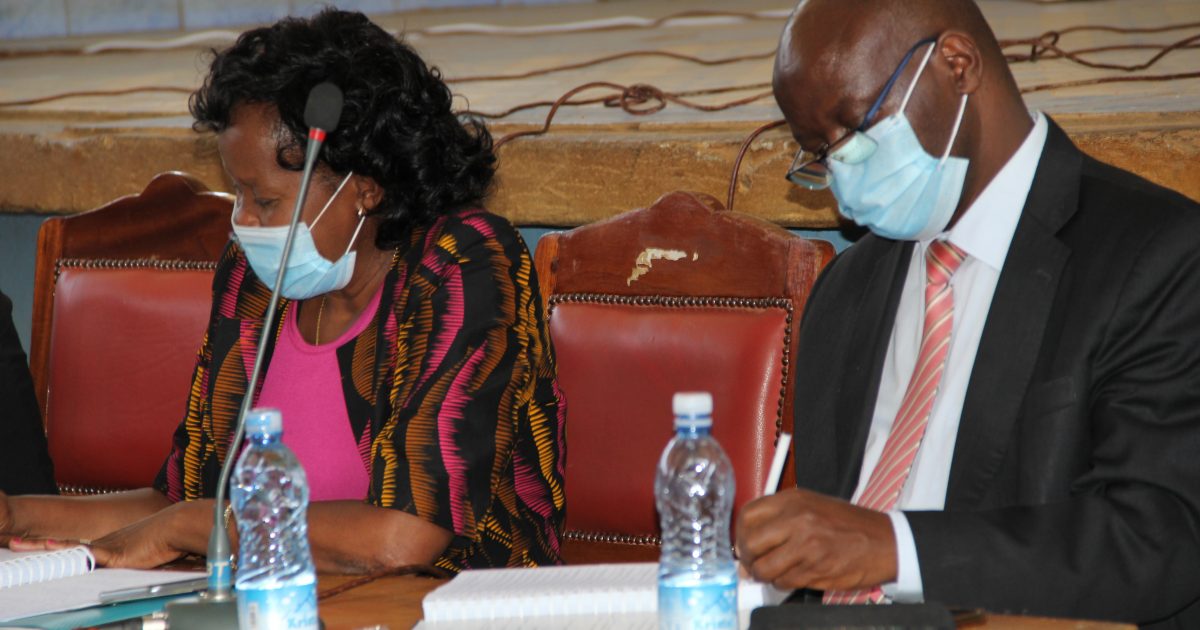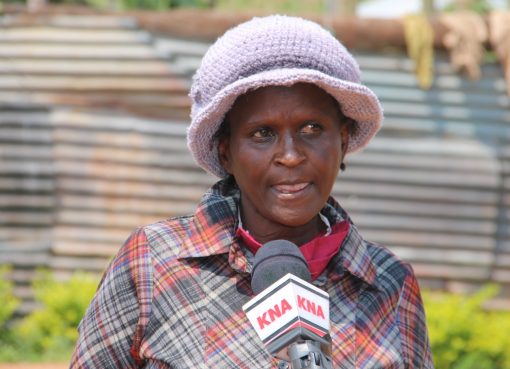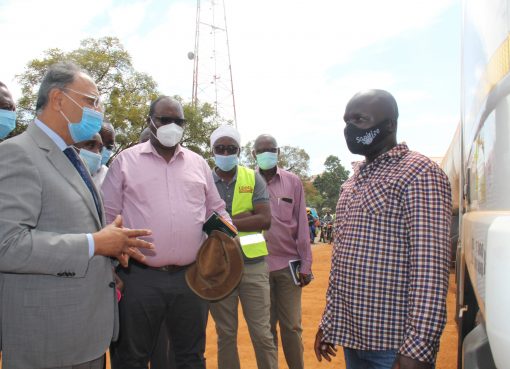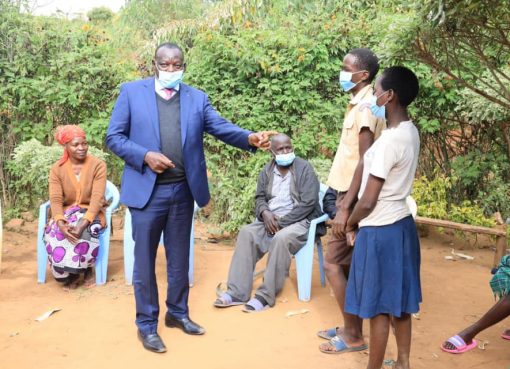Power of mercy advisory committee (POMAC) held its 4th session of stakeholder and public consultations in Uasin Gishu County today.
Speaking during the consultation forum, Task force committee CEO Dr Lydia Muriuki stated the task force undertakes to welcome objectively and consider, evaluate and weigh all views expressed prior to implementing adopted recommendations into a draft policy and power of mercy (Amendment) bill.
“We are reviewing all the laws under article 133 of the constitution and simply we are doing what the law requires us as a task force committee in engaging the stakeholder and public to hear and incorporate their views for betterment and strengthening this section of the law,” she said.
Muriuki noted they are to engage the public in 24 Counties, Uasin Gishu being the fourth and theirs is to simply build the consensus of wananchi on the subject matter.
She noted that the public is thinking much alike and feel before mercy is granted, the length and severity of the crime should be reviewed critically.
“There is a public outcry on individuals who have been pardoned and reformed and still can’t access certificates of good conduct. They are not able to access job opportunities and they find themselves between a rock and a hard place,” she added.
“The chances of such individuals going back again to crime is high considering some of them are learned and can’t access any job because of their past. It is unfortunate but we are reviewing the same with our stakeholders to present a solution,” said Muriuki.
Subject to consideration, some individuals ought to be given priority such as pregnant mothers, persons with disability and people who are suffering from terminal illness.
On his part, Justice Luka Kimaru stated it is of good faith to have mercy on the convicts and the society should embrace them and not stigmatize them for their past.
“We are considering converting convicts sentences from custodial to non-custodial on individuals who have been sentenced to 3 years and below and those whose sentences are lapsing in 3 years time,” he said.
Justice Kimaru who is also a member of the taskforce stated this was simply converting them from boarding to day scholars.
He reiterated the issue of elders in solving societal issues as it is there in our constitution, adding, we should recognize the use of traditional dispute mechanisms in resolving some of the disputes.
“There is a task force with a report on revival of use of elders in dispute resolution with some elements of cultural aspects to be presented before parliament and will be incorporated within our justice system,” he said.
Justice Kimaru emphasized on the important role Elders play in solving those small cases to the level of satisfaction, which would otherwise end up clogging the justice systems.
“The Task force committee deals with criminal justice which will enable Elders to solve other small cases that can be resolved easily,” he added.
It’s unfortunate that these people convicted don’t know how to argue their cases in court and by the time they are sentenced their rights have been violated. He noted although there is legal aid act but unfortunately the government has not put a budget on it but hoped sooner the budget will be placed on that docket.
The legal aid act helps those people who don’t have lawyers to defend them and it will be a responsibility of the government to employ advocates for them.
Tom Oyula, an ex-convict, indicated he was released nine years ago from prison and having been educated, he cannot be employed simply because of not accessing certificate of good conduct.
“We feel helpless as ex-convicts. We have reformed and our future is in jeopardy simply because of a Police clearance Certificate,” he said.
“I have a friend who is married and uses Boda Boda as a means of livelihood but police keep harassing him. He can’t get a licence simply because of a good conduct certificate,” he added.
“I have a certificate in accounting, higher diploma in law and a diploma in theology. I pray that sometimes in the future I’ll be a useful person in society,” he added.
Muriuki stated the public sensitization program will support the streamlining process in Kenya
The power is exercised based on four reports from prison to show one is rehabilitated, probation report is about forgiveness from family, victim and community to accept the convicts back to society, Report from Directorate of Criminal Investigation (DCI) to confirm if the convict is a serial offender or a fast time offender and finally report from National Intelligence Service (NIS) to confirm if they are still criminals in jail an example is those people who send criminal message e.g. “Tuma pesa kwa hii number ile ingine imeblock”.
The committee’s role is to advise the president on the exercise of the power of mercy.
The task force is on a continuous mission to sensitize 24 counties on the review of the laws relating to the exercise of the power of mercy under article 133 of the constitution.
By Hassan Adan Ali





